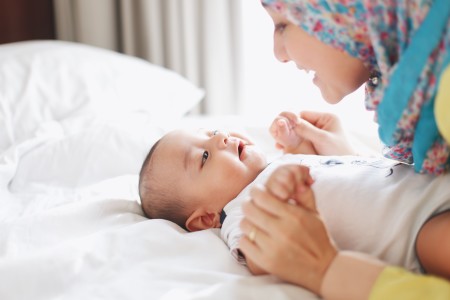
This article was last updated on 26/07/2023
If you’re planning to take time out of work to have a baby, chances are your pension isn’t high on your list of immediate priorities. Yet just as preparing for sleepless nights and the emotional rollercoaster of being a new parent is essential, so too is ensuring your finances are in order.
In addition to your maternity pay, it’s important to factor pension contributions into your financial planning for a baby. Here’s everything you need to know about what happens to your pay and pension during maternity leave.
How does maternity leave work?
Since April 2015 parents are allowed to share up to 12-months of leave following the birth of a child. That means a full year of maternity or paternity leave, or a combination of the two which is usually called Shared Parental Leave and can last for up to 50 weeks. It’s not compulsory to take a full year off, however it is your legal right, should you wish to.
Typically maternity leave‘s split into two parts; Ordinary Maternity Leave and Additional Maternity Leave. Ordinary Maternity Leave covers the first 26 weeks of your leave and if you go back to work during this period you can return to the exact same job you had before leaving to have a baby.
Additional Maternity Leave covers the last 26 weeks and your rights change slightly during this time. If you go back to work during this period you can return to the same job, but only if it’s available. If it isn’t your employer has to offer you a similar job with the exact same pay and conditions.
Maternity pay
How much maternity pay you’ll receive will vary from employer to employer, however you’re guaranteed to receive 39 weeks’ pay at the statutory minimum or above.
With Statutory Maternity Pay (SMP) for the 2023/24 tax year, you’ll receive 90% of your average weekly salary for the first six weeks then either £172.48 or 90% of your average weekly salary for 33 weeks (depending on which is the lowest). If you decide to take a year’s maternity leave and claim SMP, the last 13 weeks will be unpaid. Note that Statutory Maternity Pay payments will be taxed and National Insurance will be deducted.
A person earning the average weekly UK salary of £571 would receive £513.90 for the first six weeks, then £172.48 for the following 33 weeks.
To qualify for SMP you’ll need to earn at least £123 a week and have worked for your employer for 26 weeks when you reach the 15th week before your due date. If you earn less than £123 a week or are self-employed you may be entitled to Maternity Allowance.
Maternity rights
During your time away from work you’re allowed to benefit from all the things you usually would such as paid holiday, employee protection from unfair dismissal, employee benefits and employer pension contributions.
Pensions and maternity leave
If you’re eligible to receive maternity pay during your leave you’ll also continue receiving regular pension contributions from your employer. Due to Auto-Enrolment, all employers have to enrol their staff into a company pension scheme and contribute at least 3% of their annual salary to the pension in 2023/24.
Maternity rights state that those on maternity leave must receive the same benefits as they would if they were at work, which includes pension contributions. You won’t need to do anything as your employer will make these payments automatically, however you must ensure you remain in your pension scheme, continue with your payments and don’t opt-out.
Pension contributions during maternity leave
If you receive SMP, your employer has to keep paying into your pension for at least 39 weeks and possibly longer, depending on what’s agreed in your contract. Payments will usually be based on the salary you received before you went on maternity leave, and if you’re in a pension scheme where your employer matches your contributions, they’ll also be matched to the level of contributions you made before your leave began.
The contributions you make to your pension during maternity leave will be based on your actual earnings during this period which may be lower than your usual payments. That means your contribution level may fall over the duration of your maternity leave, if you don’t increase your payments.
Unless your contract states otherwise, your employer won’t have to make a contribution to your pension during the period of your maternity leave where you’re not being paid, such as the last 13 weeks if you receive SMP. This period is considered as unpaid leave and you may want to make extra contributions to cover it when your leave ends and you go back to earning your full salary.
Topping up your pension after maternity leave
When you return to work after maternity leave you may want to consider topping up your pension. You can contribute up to £60,000 to your pension each year so if you haven’t used this allowance during your maternity leave, you may want to make up for any personal or employer contributions that reduced towards the end of your leave.
Topping up your pension will ensure your savings aren’t adversely affected by any time taken out to raise children and can help keep your savings on track for retirement. This is especially important the more children, and therefore the more breaks, you have throughout your career.
It’s a good idea to review your pension every so often and see how your savings are performing. If you have several workplace pensions, PensionBee can help you move them into one simple plan that you can manage online. Find out more about how PensionBee works and sign up today.
Risk warning
As always with investments, your capital is at risk. The value of your investment can go down as well as up, and you may get back less than you invest. This information should not be regarded as financial advice.




